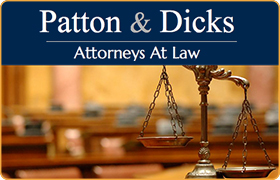Nichols Family Law Lawyer, Florida
Sponsored Law Firm
-
 x
x

Click For More Info:
-
Patton & Dicks
5428 Strickland Avenue Lakeland FL 33812» view mapFamily Law, Divorce, Child Support Real Attorneys Fighting For Real People
As Family Law Attorneys we fight for people's rights as parents. Find out how our services can help your situation.
863-225-3550
Includes: Collaborative Law, Domestic Violence & Neglect, Paternity, Prenuptial Agreements
Kevin Leisure
Divorce & Family Law, Accident & Injury, Personal Injury, Family Law
Status: In Good Standing Licensed: 23 Years

 About MeMore Info
About MeMore Info PracticesPatton & Dicks
PracticesPatton & Dicks
